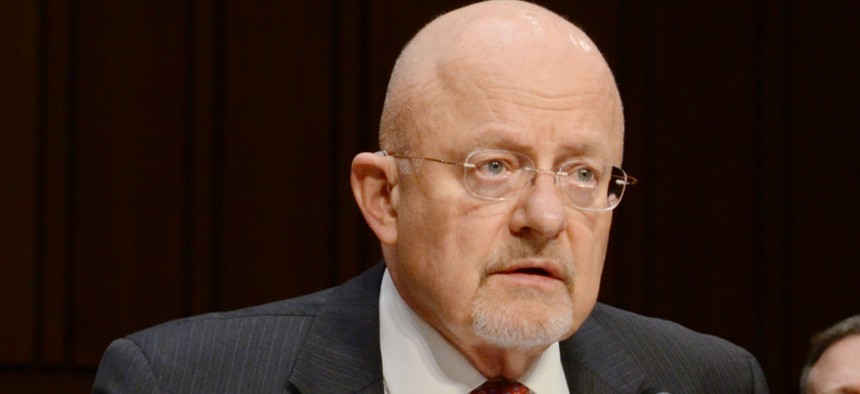
Intelligence Director James Clapper Office of the Director of National Intelligence
Intel Community Discloses Top-Line Budget Request of $53.5 Billion
Plan prioritizes high-impact threats, improved information technology.
As required since 2012, the Office of the Director of National Intelligence on Tuesday joined with the rest of the Obama administration in publicly releasing its fiscal 2017 budget request.
The $53.5 billion request, a slight drop from last year’s, includes funding to support war-zone overseas contingency operations. No further breakdowns were provided, nor did officials provide the amount appropriated for fiscal 2016, which remains classified—except for the management account for the 17-agency Intelligence Community, Director James Clapper said in a statement. The release reflects “the administration’s commitment to transparency and open government,” said a fact sheet from the Office of the Director of National Intelligence.
“World events and the pace of technological change continue to challenge our national security posture and policies, requiring an ongoing effort to develop and adjust strategies to deal with evolving and emerging threats,” the statement said. “The budget also reflects the need to make difficult choices in the context of resource constraints.”
The budget would continue investments in intelligence collection and operational capabilities while protecting the community’s ability to respond to emerging threats, the office said. It also would promote “increased intelligence sharing and advancing IC integration through continued investment in enterprisewide capabilities and use of cloud technology to facilitate greater efficiency and improve the safeguarding of information across the intelligence information environment.”
And it promises to achieve “savings by ensuring that the IC focuses on those programs that have the most impact and highest priority.”
Some critics weighed in to argue for greater disclosure of details of individual agency requests. These include lawmakers such as Rep. Peter Welch, D-Vt., who serves on the Oversight and Government Reform Committee, and several law professors, as summarized by Federation of American Scientists transparency blogger Steven Aftergood.
NEXT STORY: Senate Panel Approves OPM Nomination







